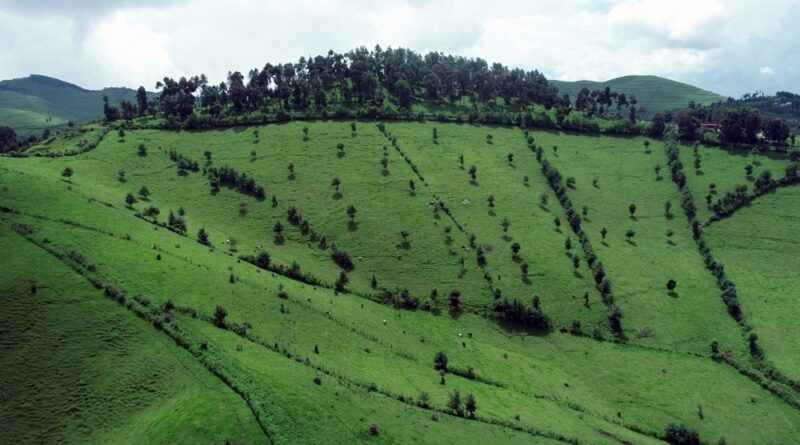Rwanda on Track to Restore 2 Million Hectares of Land by 2030 for Biodiversity Conservation
The Rwanda Forestry Authority (RFA) has announced that the Government of Rwanda is making significant progress toward achieving its goal of restoring two million hectares of land by 2030 as part of efforts to conserve and protect biodiversity.
In 2011, various countries met in Bonn, Germany, and committed to restoring 150 million hectares by 2020 and 350 million hectares by 2030.
At that time, each country set a target of hectares to restore in order to contribute to the global goal. Rwanda, as a country that understands that sustainable development is impossible without conserving biodiversity, committed to restoring two million hectares.
The hectares to be restored were once forested but have been degraded by human activity, which has affected biodiversity, leading to the extinction of some plants and animals, while others are endangered and could disappear completely if urgent action is not taken.
The Director-General of RFA, Dr. Nsengumuremyi Concorde, said in an interview with IGIHE, from which this information is sourced, that Rwanda has made great progress toward this goal.
“We are at 68%. In fact, we are making significant progress. The two million hectares will not just be covered with trees but also involve all activities that can help restore the land. Forests are emphasized because they play a major role in restoring land to its original state,” he said.
In addition to tree planting, other activities contributing to the implementation of this Bonn Challenge goal include constructing bench terraces, progressive terraces, digging trenches to prevent erosion, planting grass on ridges, and agroforestry (planting trees alongside crops).
The implementation of this goal is supported by partners involved in biodiversity conservation and climate change mitigation.
Dr. Ange Imanishimwe, an expert and Director of the BIOCOOCOR organization that focuses on biodiversity conservation in Rwanda, told IGIHE that Rwanda’s commitment was crucial as it attracted projects and donors to help restore areas damaged by human activity.
“This will also help trees to grow back properly, and the remaining biodiversity will multiply and thrive,” she said.
Dr. Imanishimwe added that Rwandans should be proud of the efforts Rwanda is making in conserving biodiversity, as it will ensure the continued availability of traditional medicine, attract tourists and researchers interested in plants, create job opportunities for young people, and increase beekeeping since bees will have more plants from which to collect nectar.

